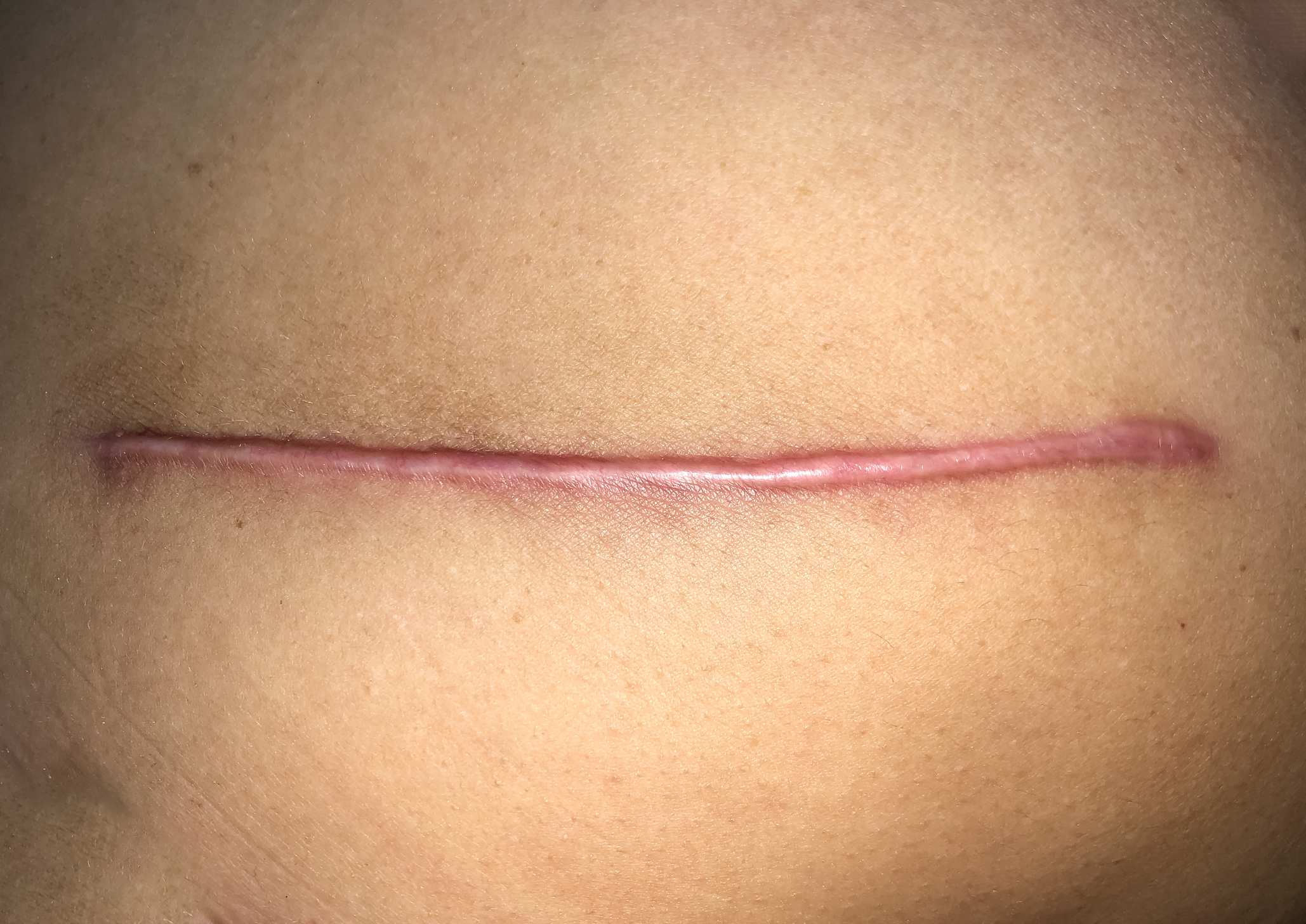
Prevent/Minimize Scars
Scarring becomes a possibility whenever the skin experiences damage. Surgery involves creating an incision in the skin, a process that usually involves cutting through all skin layers, carries the potential for scarring, regardless of the surgical site on the body.
To prevent scars, concentrate on factors within your control. Simple steps, such as adhering to Dr. Tomac’s post-surgery instructions, are effective. Meanwhile, more challenging efforts, like quitting smoking, also play a crucial role.
What are the risk factors for scarring?
Your Age: As we age, our skin undergoes changes, becoming less elastic and thinner. Aging affects collagen, responsible for skin elasticity, and the thinning of the fat layer beneath the skin. Combined with factors like sun exposure, smoking, and environmental influences, aging skin may not heal as effectively or swiftly. However, age-related imperfections, such as sun damage, can sometimes work to camouflage scars more effectively than on younger skin.
Your Skin Tone & Complexion: Skin coloration plays a role in scarring tendencies. Darker skin tones are more prone to hypertrophic and keloid scars, characterized by excessive scar tissue growth. While certain scars may blend better with darker skin, individuals with fairer skin may find their scars more noticeable.
Size & Depth of Your Incision: The size of an incision significantly influences scarring outcomes. Larger incisions are more likely to leave scars than smaller ones. The depth and length of the incision impact the healing process duration and increase the potential for scarring, particularly when exposed to movement-related stress during the healing period.
How Quickly Your Skin Heals: The speed of your skin’s healing process varies among individuals. Some may experience rapid and minimal scarring, while others, especially those with conditions like diabetes, may heal more slowly. The speed of healing is a personal aspect that can be influenced by factors such as illness or injury.
What can I do to minimize scarring?
- Smoking: Quit smoking completely at least 2 weeks before surgery to reduce both the risk of scars and promote faster healing.
- Drinking: Avoid alcohol during the healing period, as it can dehydrate the body and skin, compromising overall health.
- Nutrition: Consume a balanced diet with a focus on protein intake, essential for healing skin. Lean protein sources like meat and soy products are beneficial.
- Hydration: Stay well-hydrated to support healing; dehydration can impact overall health and hinder the recovery process.
- Weight Management: Maintain a healthy weight to prevent excess fat under the skin from interfering with seamless incision closure.
- Rest: Follow Dr. Tomac’s advice on rest duration; returning to regular activities prematurely can impede healing.
- Proper Wound Care: Adhere to your surgeon’s recommendations for wound care, which is crucial in preventing infection and ensuring scar-free healing.
- Identify Infection Quickly: Recognize signs of infection and seek prompt medical attention if needed, as infections can compromise healing and contribute to scarring.
- Chronic Illness Management: Control chronic illnesses like diabetes before and during recovery to optimize healing. Maintaining normal blood glucose levels is particularly vital for diabetics.
- Avoid Stress on Incision: Refrain from activities that stress the incision, such as lifting or bending, to prevent delays in healing and unnecessary enlargement of the scar.
- Sunlight Exposure: Minimize sun exposure on the incision site. Invest in a good sunscreen as recommended by Dr. Tomac after suture removal or complete incision closure.
